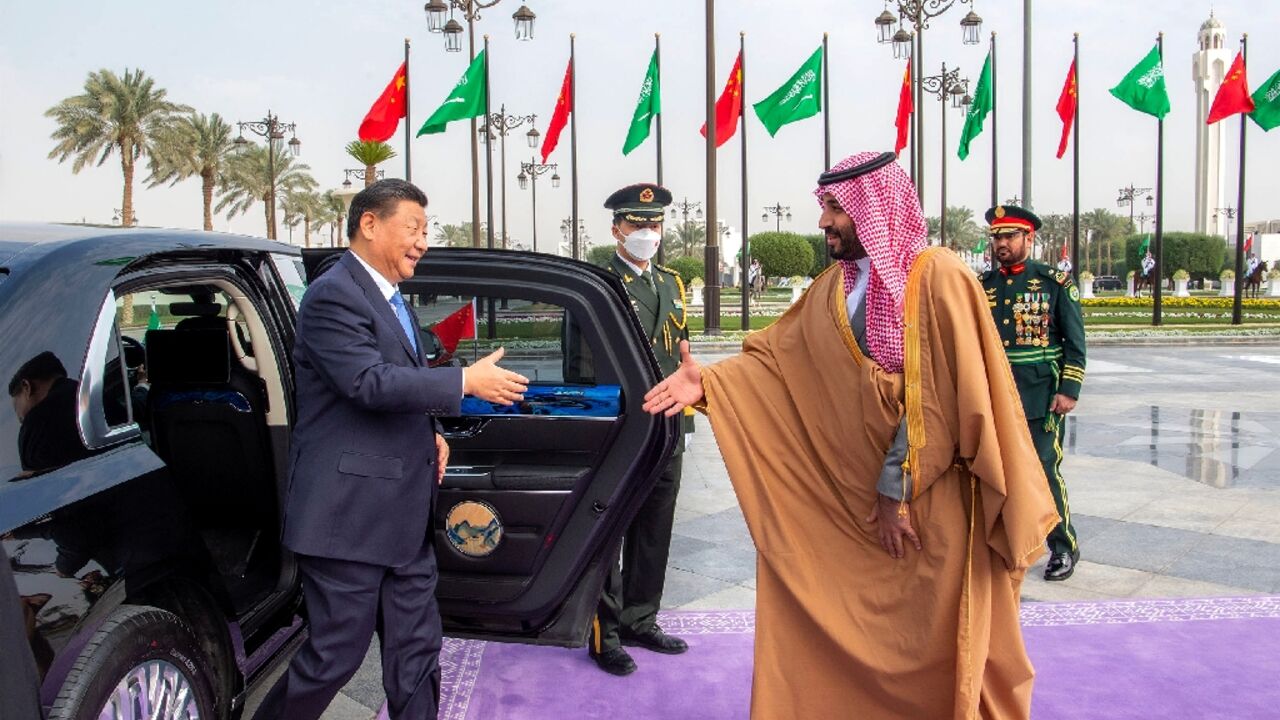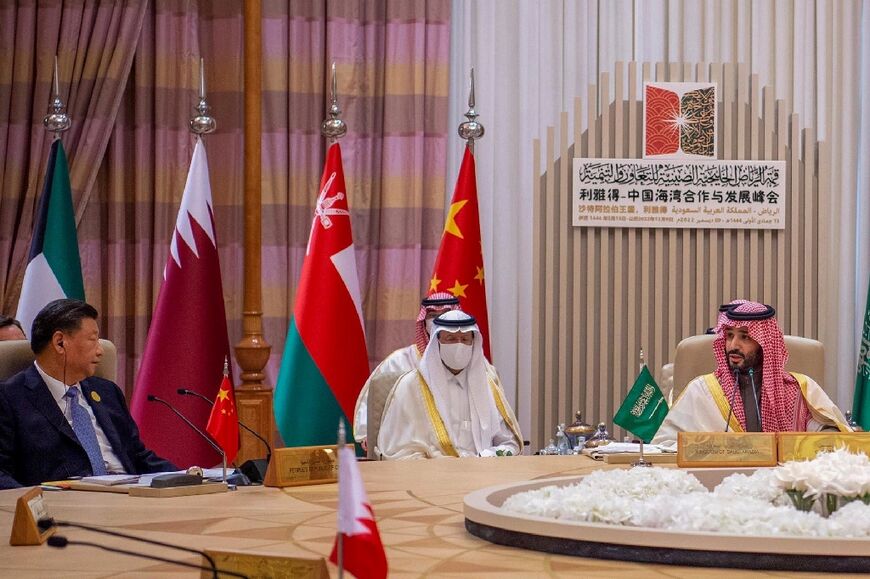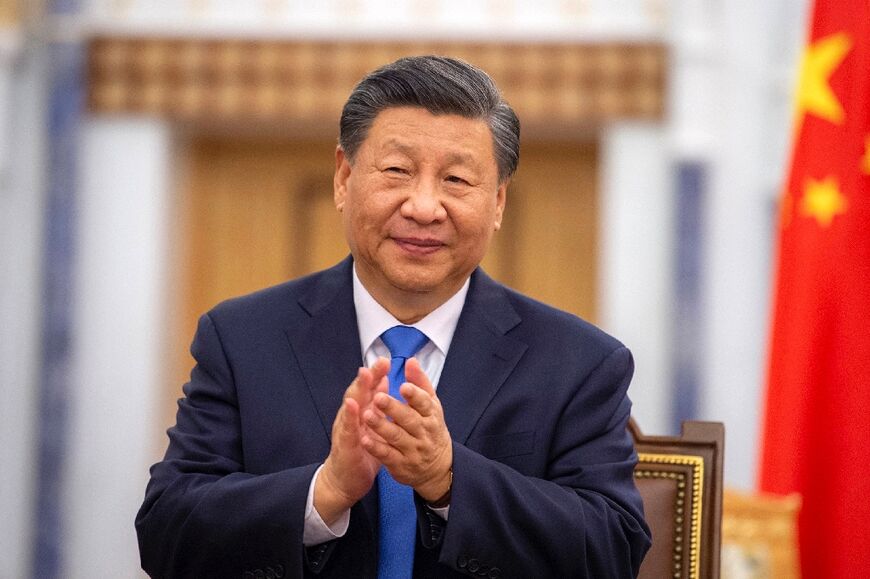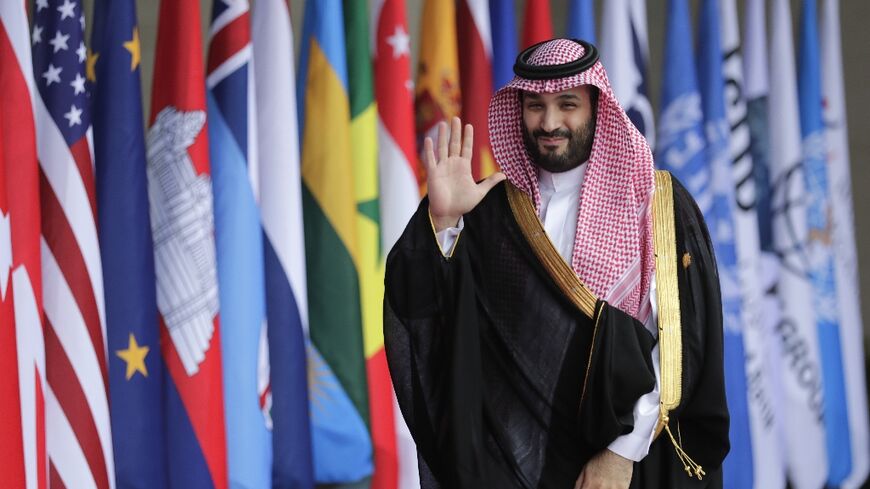With eye on Washington, Saudi courts closer China ties

Chinese President Xi Jinping's trip to Saudi Arabia this week made clear just how quickly ties are intensifying during a period of geopolitical realignment, despite warnings from the White House.
The agenda included talks with Saudi royals and summits with the six-member Gulf Cooperation Council and broader Arab League, yielding agreements on everything from infrastructure to space.
Yet the lack of public bilateral breakthroughs on sensitive portfolios like defence and telecommunications will make it easier for Saudi Arabia to continue balancing the demands of Beijing and longtime security guarantor Washington -- at least for now.
Weeks before Xi touched down in Riyadh on what was just his third journey overseas since the coronavirus pandemic began, a top US official warned Gulf countries about the risks of growing too close to China.
"There are certain partnerships with China that would create a ceiling to what we can do," Brett McGurk, the National Security Council's Middle East Coordinator, told a security conference in Bahrain in November.
The White House reiterated that warning on Wednesday, saying China's attempt to amass influence in the Middle East and beyond is "not conducive" to international order.
The same statement, however, stressed that the US is not asking countries to choose between Washington and Beijing, and Saudi foreign minister Prince Faisal bin Farhan made clear on Friday that the Saudis have no plans to.
"We will continue to work with all of our partners," he told a press conference after this week's meetings wrapped up.
That includes maintaining strong relations with the US "across the board", he said.
- Signs of caution -
China has long been a close energy partner of Saudi Arabia, consuming roughly a quarter of its crude exports last year.
As ties expand, Riyadh is "moving very cautiously" in areas that are more concerning to Washington, notably defence, telecommunications and nuclear energy, said Naser al-Tamimi, an expert on Gulf-China ties at the Italian Institute for International Political Studies.
That approach was visible this week.
Prince Faisal said on Friday that deepening existing collaboration with China on the manufacturing and sale of weapons was not a focus of the bilateral sit-downs, saying the emphasis instead fell on "economics".
In his remarks to the China-GCC summit on Friday, Xi vowed to "jointly establish" a forum on nuclear technology, while stressing that training opportunities for Gulf nations would focus on its "peaceful use".
Xi also said China would make full use of a Shanghai-based platform to process oil and gas transactions in Chinese yuan, a potential threat to the global dominance of the US dollar.
Yet when asked if Riyadh would participate in such a scheme, Prince Faisal said on Friday that "I don't know anything about it".
This caution aside, Saudi Arabia "will not stop cooperation with China" because it believes the success of Vision 2030, a reform and economic diversification agenda championed by Crown Prince Mohammed bin Salman, depends on it, Tamimi said.
- A 'new phase'? -
Both Xi and Prince Mohammed, Saudi Arabia's de facto ruler, billed this week's talks as a milestone.
Prince Mohammed said on Friday they would usher in "a new phase for the advancement of relations between our countries".
But in many ways the substance of the talks represented a continuation of Saudi foreign policy under Prince Mohammed, who was appointed first in line to the throne by his father King Salman in 2017.
His approach "is mainly driven by mutual interests and is no longer held hostage by historical trends," said Umar Karim, an expert on Saudi politics at the University of Birmingham.
One difference now, though, is that Prince Mohammed has more fraught relations with US President Joe Biden than he did with Biden's predecessor, Donald Trump.
That was clear during Biden's tense visit to Jeddah over the summer -- when he awkwardly reversed a pledge to make the Saudis a "pariah" -- and a more recent dispute over oil production cuts approved by the OPEC+ bloc.
"Although Saudi policy towards China wasn't much different during President Trump's time, (Prince Mohammed's) cordial and personal relationship with the Trump family did moderate some Saudi actions," Karim said.
Looking ahead, both Saudi Arabia and its Gulf neighbours are likely to remain focused on their own needs rather than old allegiances, said Kristian Ulrichsen, a research fellow at the Baker Institute at Rice University.
"The main takeaway is that the Gulf States do not view relations with the US and China as a zero-sum game and are asserting their own interests in ways that do not necessarily align with Washington," Ulrichsen said.







